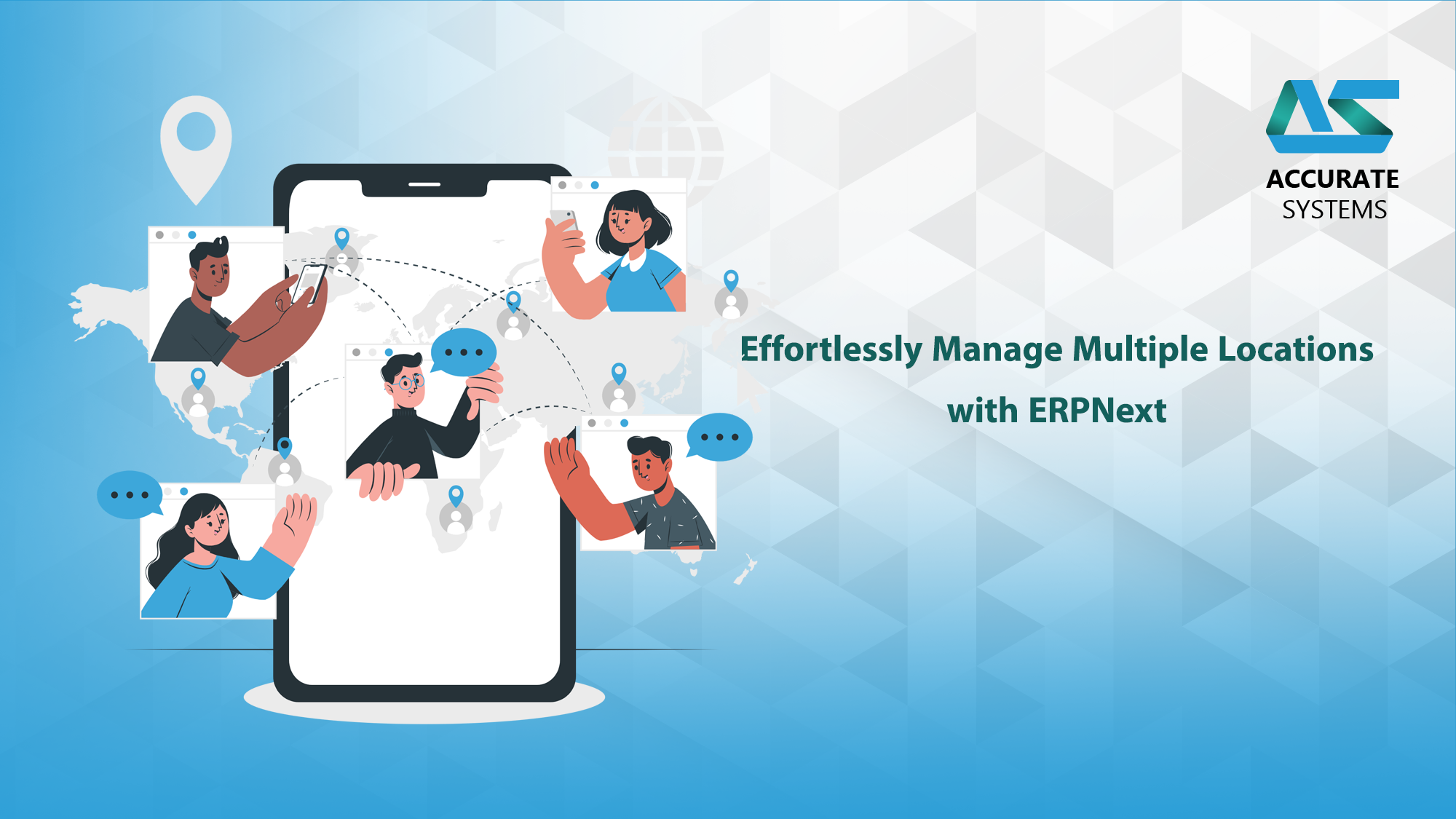Managing multiple business locations can be a complex and overwhelming task, especially as your operations grow. Challenges such as coordinating intercompany transactions, ensuring real-time data synchronization, and maintaining a clear overview of all locations are common hurdles. ERPNext, a robust and versatile ERP solution, simplifies these challenges, enabling businesses to efficiently manage multiple locations while fostering growth. In this article, we explore how ERPNext empowers organizations to streamline operations across locations with centralized data, real-time insights, and seamless processes.
The Challenges of Managing Multiple Locations
Operating multiple business locations comes with unique challenges, including:
- Data Silos: Isolated systems across locations lead to inconsistent and fragmented data.
- Inefficient Communication: Poor coordination between branches hinders productivity and decision-making.
- Complex Intercompany Transactions: Managing transfers, invoicing, and accounting between locations can be cumbersome.
- Lack of Real-Time Visibility: Decision-making suffers without up-to-date insights into inventory, sales, and financials across all locations.
- Regulatory Compliance: Adhering to local regulations and tax laws across multiple regions adds complexity.
Addressing these challenges requires a centralized solution that provides real-time oversight and seamless integration of operations—a role perfectly suited to ERPNext.
How ERPNext Simplifies Multi-Location Management
ERPNext is a powerful, open-source ERP platform designed to streamline operations across multiple locations. Here’s how it helps businesses overcome the challenges of managing multiple sites:
1. Centralized Data Management
ERPNext consolidates data from all locations into a unified system, eliminating silos and ensuring consistency. This central repository allows decision-makers to access accurate and up-to-date information from anywhere, enhancing operational transparency.
2. Streamlined Intercompany Transactions
Managing intercompany transactions becomes effortless with ERPNext’s intercompany module. Features include:
- Automated invoicing between branches.
- Real-time inventory transfers.
- Centralized accounting for consolidated financial reporting.
3. Real-Time Insights
With ERPNext, businesses gain real-time visibility into key metrics such as:
- Inventory levels at each location.
- Sales performance and revenue trends.
- Financial reports, including profitability by location. These insights enable data-driven decisions to optimize operations and identify growth opportunities.
4. Customizable Workflows
ERPNext’s flexible workflows allow businesses to tailor processes for each location. Whether it’s purchase approvals, inventory management, or sales orders, organizations can configure workflows to meet specific requirements while maintaining standardization.
5. Regulatory Compliance Made Easy
For businesses operating in different regions, ERPNext simplifies compliance by:
- Automating tax calculations based on location-specific rules.
- Supporting multi-currency transactions.
- Generating reports that meet local regulatory standards.
Benefits of Using ERPNext for Multi-Location Businesses
By adopting ERPNext, businesses can unlock numerous advantages:
- Improved Efficiency: Automated processes reduce manual effort and minimize errors.
- Enhanced Collaboration: Real-time data sharing ensures seamless communication between locations.
- Better Decision-Making: Centralized analytics provide actionable insights to drive growth.
- Cost Savings: Streamlined operations lead to reduced overhead and operational costs.
- Scalability: ERPNext’s modular design grows with your business, supporting additional locations as needed.
Real-World Use Cases of ERPNext in Multi-Location Management
1. Retail Chains
Retail businesses use ERPNext to:
- Manage inventory across multiple stores.
- Optimize supply chain processes.
- Monitor sales and revenue in real time.
2. Manufacturing Companies
Multi-location manufacturing firms benefit from:
- Centralized production planning.
- Efficient distribution of raw materials and finished goods.
- Comprehensive reporting for all facilities.
3. Service Providers
Service-based organizations leverage ERPNext to:
- Schedule resources across locations.
- Maintain uniform service quality.
- Track customer feedback and performance metrics.
Conclusion
ERPNext is a game-changer for businesses managing multiple locations. Its centralized data, simplified intercompany transactions, and real-time insights empower organizations to operate efficiently and scale seamlessly. By leveraging ERPNext, businesses can overcome the complexities of multi-location management and focus on growth and innovation. Explore ERPNext today to take your multi-location operations to the next level.


